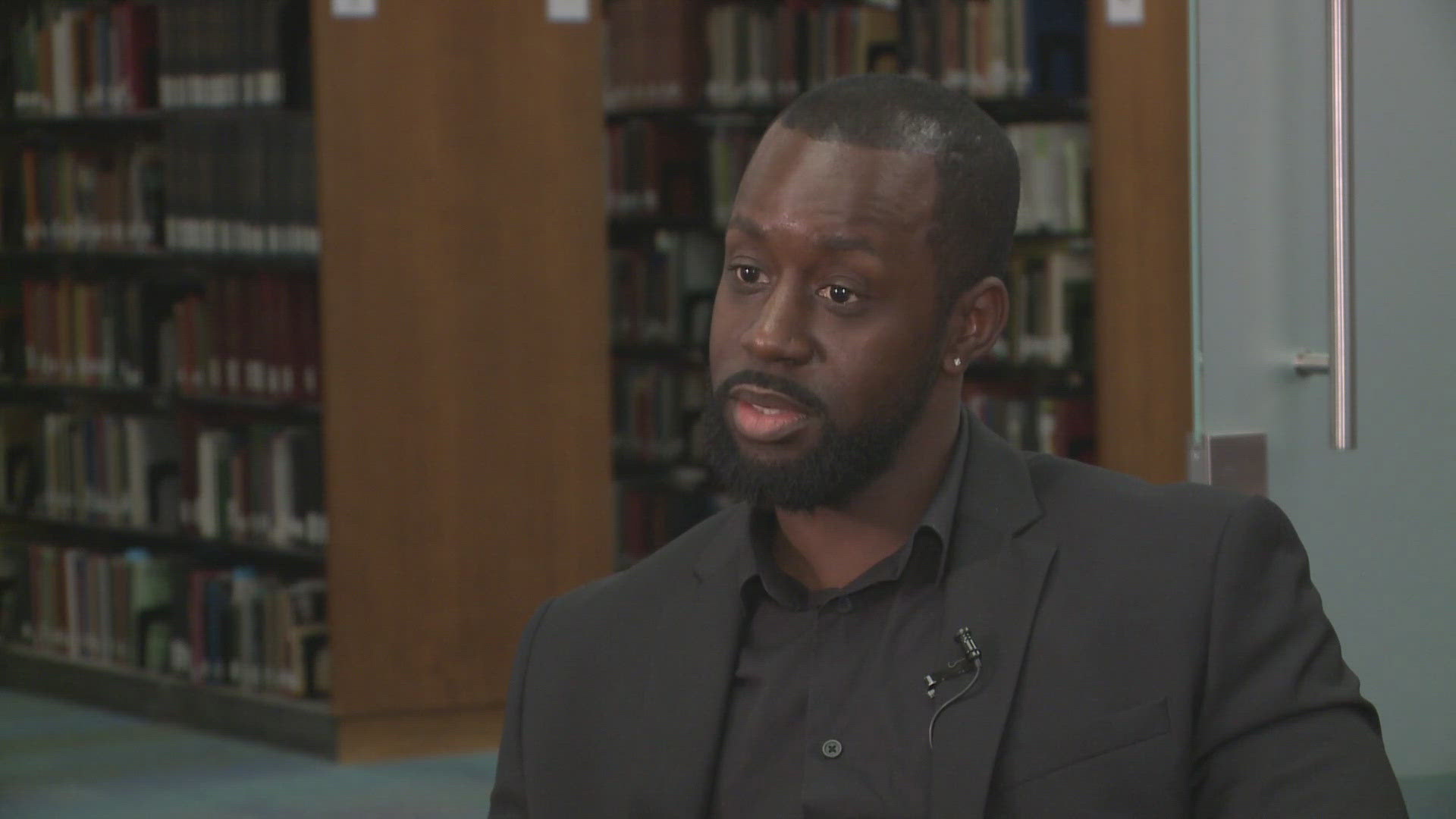EDWARDSVILLE, Ill. — Southern Illinois University Edwardsville has named a new director of its Black Studies Program.
The new hire comes at a time when diversity, equity and inclusion (DEI) programs have experienced defunding. Instead, SIUE is planning for an expansion with a newly selected director, Timothy Lewis.
Lewis was selected for the role just last month. He also serves as Chair of the Department of Social Work. He says getting the job comes down to one thing:
"It's a continuation of that legacy," Lewis said.
But Lewis actually started a legacy of his own. He's the university's first Black American to earn tenure in the Department of Political Science.
The Black Studies program at SIUE has history that dates back to 1992. Professor Rudolph “Rudy” G. Wilson established the Black American Studies Program. Wilson was also the first person to serve as Assistant Provost for Culture and Social Diversity. The Black Studies Program has been led by several esteemed leaders and most recently before Lewis, the program was led by Kathryn Bentley who recently retired. She advocated for the legitimacy of Black Studies program as an academic discipline among working on the Black Studies Feasibility Report which provided data allowing the program to advance.
Around the country and bi-state, local lawmakers are proposing bills to limit diversity, equity and inclusion programs at state-funded institutions. In Missouri several bills have been introduced to the House and Senate to end diversity training and eliminate diversity statements for hiring at education institutions. Some of the bills could impact everything from curriculum to hiring. They're challenges Lewis notices in in the region.
"It means I'm going to have to fight and resist the powers that are trying to delegitimize [Black study programs & DEI initiatives]," Lewis said.
Lewis has a plethora of experience. He's holds a Bachelor of Arts in Political Science and a Bachelor of Arts in History from Tuskegee University, a Master of Science in International Relations from Troy University and a Ph.D. in Political Science from the University of Missouri St. Louis.
He's plans to update the courses offered with African American politics, theater and racism, and African American music.
"I've taken a concerted effort to ensure that the program is actually interdisciplinary. So now there are courses across six disciplines. Political science, History, English, Sociology, Music, and Theater, and Dance," Lewis said.
Out of 12 colleges and universities in the St. Louis region only half of them offer African American minors to students.
Lewis says his goal is to one day expand the program to be a major.
"There are currently 23 minors declared as Black Studies. As far as I'm aware all of the students are racialized as Black. While Black studies centers Blackness and under my leadership it will continue to center Blackness, I want it to be a space where students who are not racialized as Black can still learn about the Black experience," Lewis said.
Because Black History is American History.
Lewis has extensive research and publications in Blackness and the Black experience. To learn more you can read his publications.
Recent Publications:
Lewis, Timothy E. (2023). “Retrofitting Racism: The Aversive Racist Structure at Predominantly White Institutions (PWIs)” published in the Journal of Negro Education.
Lewis, Timothy E. (2022). “African American Gatekeepers or the Black Church?: Using Modified Grounded Theory to Explore the Debate on Black Homophobia.” published in the Journal of Homosexuality.
Lewis, Timothy E. and Nelson, Sherice. (2021). “Insulated Blackness: The Cause for Fracture in Black Political Identity.” published in Politics, Groups, and Identities.
Lewis, Timothy E. (2019). “Black Curativeness: Understanding Black Voter Selection through an Assessment of Racially-charged Districts.” published in the National Political Science Review 20(3).

